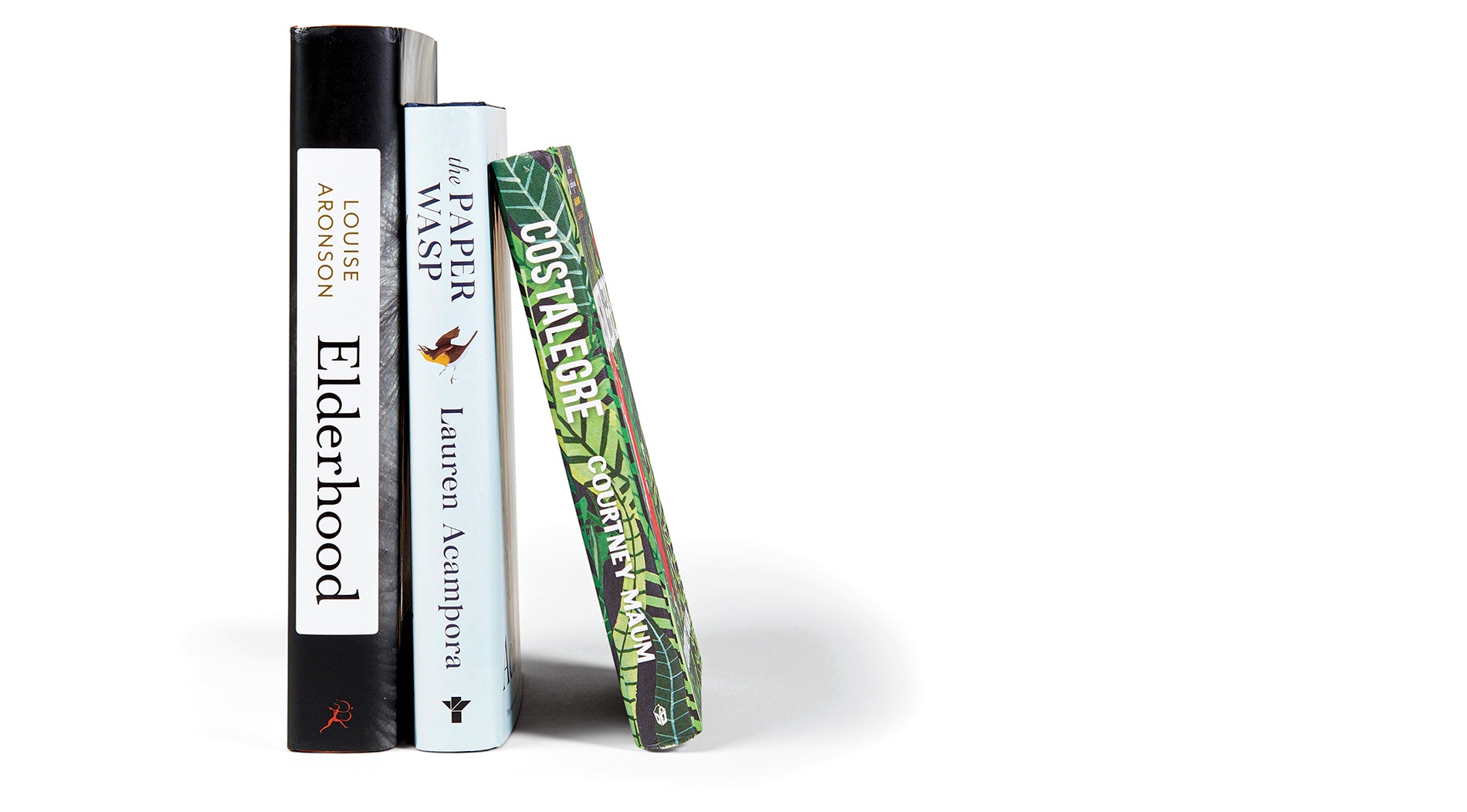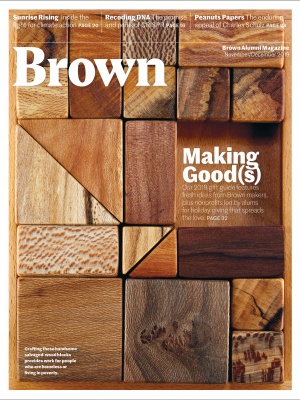Elderhood: Redefining Aging, Transforming Medicine, Reimagining Life by Louise Aronson ’86 (Bloomsbury)
In this mix of memoir and reportage, Aronson, a geriatrician and professor of medicine at the University of California San Francisco, sifts through her experiences as a physician to highlight the many ways our medical system makes life harder for the elderly. What Aronson (A History of the Present Illness) convincingly argues for here is a shift in the way society and medicine view old age, so it’s not seen as simply a straight-line decline but a separate phase of life—like childhood and adulthood—with its own challenges and rewards.
The Paper Wasp by Lauren Acampora ‘97 (Grove Press)
Abby Graven, a brilliant, dreamy artist, felt stranded back in Michigan after her eighth-grade best friend Elise Van Dijk headed off to Hollywood on a rocket sled to stardom. When they meet again at a ten-year high school reunion, Elise casually suggests that maybe Abby should come to Los Angeles and be her assistant? After Abby books a flight and shows up unannounced, things get a little twisted. In this debut novel, Acampora
(The Wonder Garden) takes a vivid, nuanced look at ambition, art, and fraught relationships, one that sparkles from sentence to sentence.
Costalegre by Courtney Maum ’01 (Tin House)
It’s 1937 at a resort on the coast of Mexico where Leonora Calaway, an art-collecting heiress, has spirited away a cache of avant-garde writers and painters who are fleeing Hitler’s rise in Europe. We’re seeing this through the diary of Lara, Leonora’s 14-year-old daughter, a painter who dearly misses her distracted mother. This is Maum’s third novel (following I Am Having So Much Fun Here Without You and Touch), and the narrative, loosely based on the story of Peggy Guggenheim and her daughter, Pegeen, is a spare but convincing glimpse into a young life surrounded by celebrity and shaped by longing.
Alumni Nonfiction
Equity Visits: A New Approach to Supporting Equity-Focused School and District Leadership by David Allen ’88 MAT, Thomas C. Hatch ’83, Larry Leverett, Rachel D. Roegman ’98, and Scott T. Thompson (Corwin)
Making Conversation in Modernist Fiction by Elizabeth Alsop ’01 (Ohio State)
The Creative Underclass: Youth, Race, and the Gentrifying City by Tyler Denmead ’98 (Duke)
Educating Harlem: A Century of Schooling and Resistance in a Black Community, ed. Ansley T. Erickson ’95 and Ernest Morrell (Columbia)
Tobe: A Critical Edition: New Views on a Children's Classic edited by Benjamin Filene ’87 (UNC)
Runaway Genres: The Global Afterlives of Slavery by Yogita Goyal ’00 AM, ’03 PhD (NYU)
Opening the Gates to Asia: A Transpacific History of How America Repealed Asian Exclusion by Jane H. Hong ’06 AM (UNC)
Social Sadomasochism: How Emotional Dominance and Submission Affect People's Lives by Martin Kantor ’54 (Praeger)
Sports and Foreign Policy in Taiwan: Nationalism in International Politics by Catherin Kai-Ping Lin ’95 (Academica)
Life Is Elsewhere: Symbolic Geography in the Russian Provinces, 1800–1917 by Anne Lounsbery ’86 (Northern Illinois Univ.)
Give a Sh*t: Do Good. Live Better. Save the Planet. by Ashlee Piper ’03 (Running)
Family Papers: A Sephardic Journey Through the Twentieth Century by Sarah Abrevaya Stein ’93 (Farrar, Straus and Giroux)
Avidly Reads Making Out by Kathryn Bond Stockton ’89 PhD (NYU)
Political Life in the Wake of the Plantation: Sovereignty, Witnessing, Repair by Deborah A. Thomas ’88 (Duke)
Alumni Fiction
The Crime of Being by Alice Lichtenstein ’79 (Upper Hand)
Salvation Day by Kali Wallace ’01 (Berkley)





